Coronavirus doctor's diary: The older doctors risking their lives to battle Covid-19
- Published
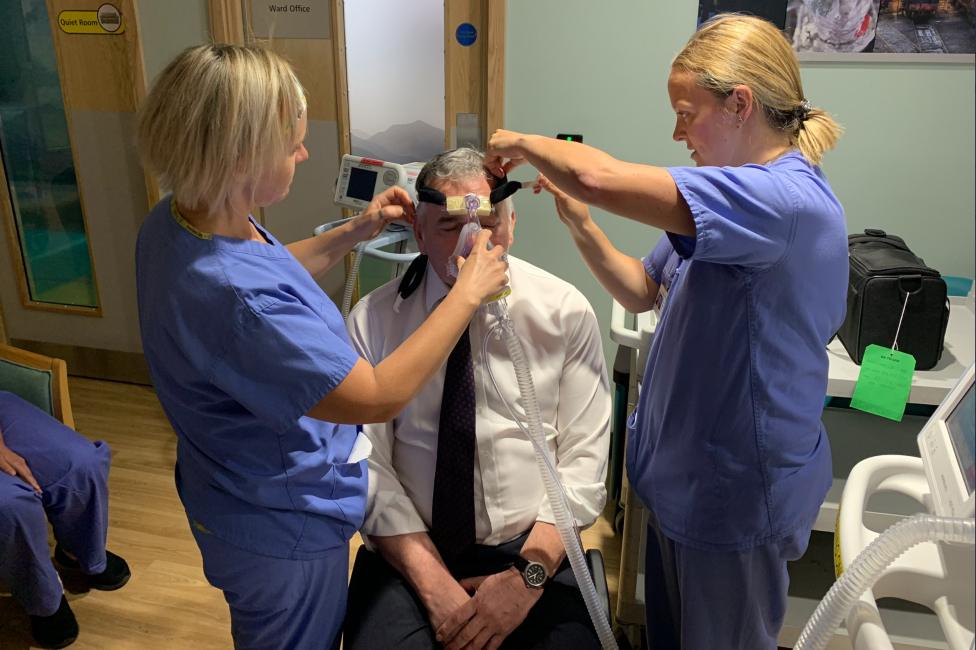
Before his illness, Alex Brown sits patiently as hospital staff practise fitting a CPAP ventilator

There has been a surge of interest in becoming a medic during this pandemic, despite the fact that those on the front line run a high risk of catching the virus. Dr John Wright of Bradford Royal Infirmary writes about two colleagues who decided to become doctors later in life and were hit hard when they came down with Covid-19.
This has been a time when the quiet men and women staffing the NHS and care homes have stepped out of the shadows and into the spotlight. They have served their country and cared for their communities, putting their lives at risk in the process.
One million people answered the call to volunteer to help the NHS in this time of crisis. Thousands have expressed interest in becoming a nurse, external and many young people have contacted the Bradford Royal Infirmary to ask when our careers outreach sessions will resume.
Becoming a doctor or a nurse or a health care worker has never seemed so important, and it doesn't matter how old you are or what you have been doing - it's rarely too late to follow your heart.
Two of my colleagues, consultant geriatrician Prof Alex Brown and orthopaedic registrar Ken Linton came to medicine after careers in the military and banking - Alex served as an army captain in Northern Ireland and the Falklands, while Ken was a vice-president of Lehman Brothers investment bank until a few months before it collapsed in 2008. At 61 and 54 they were at higher risk than many of developing serious symptoms if they caught Covid-19, and sure enough they eventually become patients in their own hospital.
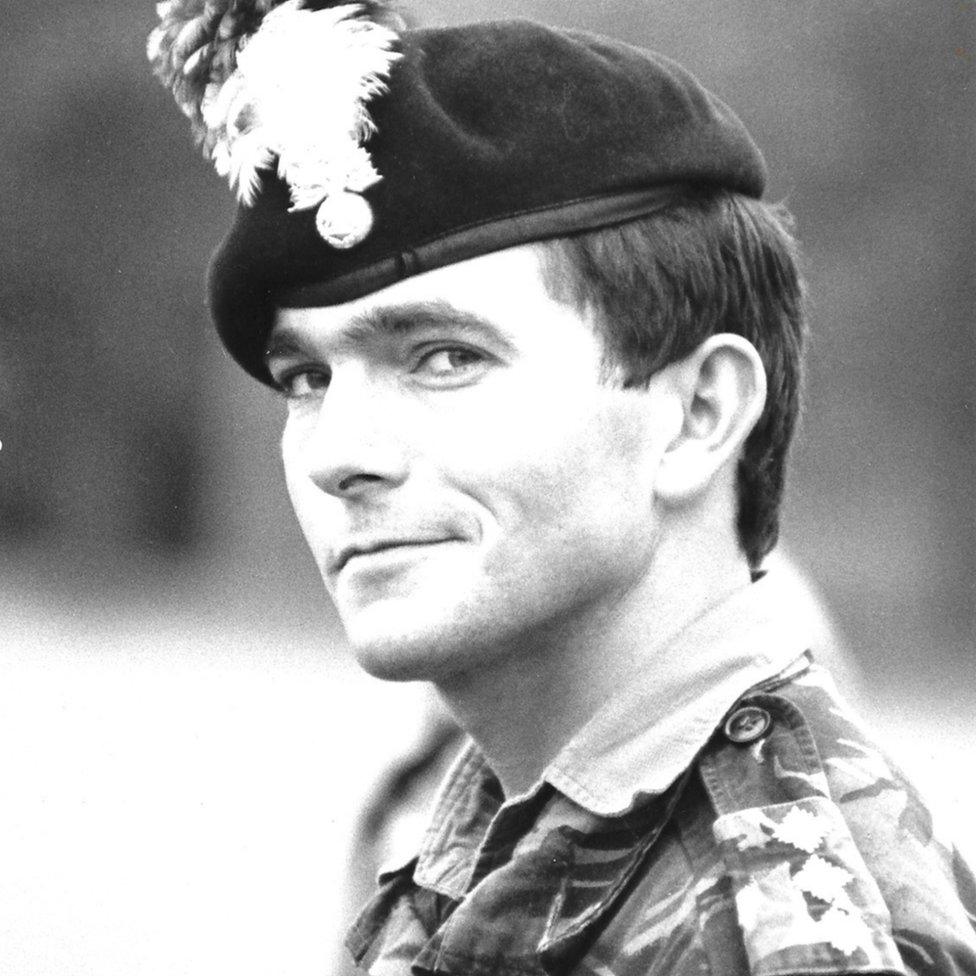
Alex Brown in uniform: The comedy MASH drew him towards medicine
For anyone who thinks that Covid is simply a flu-like illness I now point to Alex as an illustration of how it can bring a tough, stoical, ex-army man to his knees.
Alex was aware of the risk he was taking, being older and male (and a bit overweight), but it didn't stop him. "You've just got to get on and do what you've got to do," he says.
He also knew that there was no rapid test that would enable us to instantly determine which patients had Covid-19 and which did not. So while we divided the hospital into a "red" infectious zone, and a "green" zone for non-Covid patients we were never going to get it 100% right. (I wrote 10 days ago about Mark Winterbourne who tested positive after being admitted with what initially appeared to be gallstone problems.)
And as Alex points out, "The level of PPE that we wear is dependent upon what stocks are available."
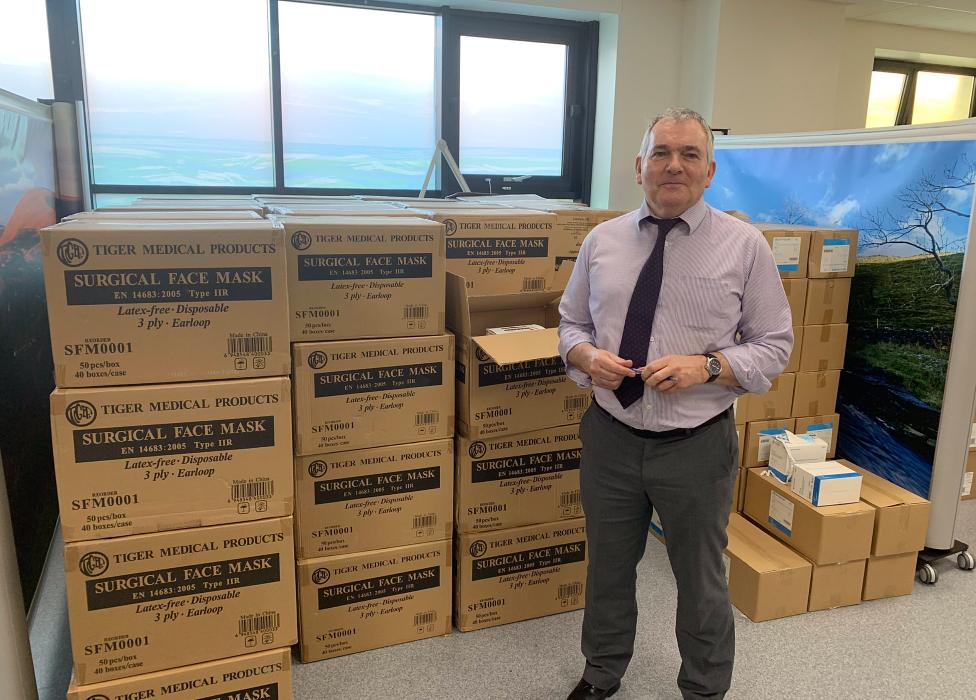
When PPE was scarce, Alex Brown organised this delivery of masks
Alex had only missed one day's work in his life, until he caught the virus. After testing positive, he then spent seven days in quarantine in his bedroom, but at this point instead of getting better, he got worse. During a walk in the garden he started shaking and sweating, and his temperature rose to 40C. Four days later his son, who had already recovered from Covid-19, drove him to A&E.
Supplied with new medication Alex went home again, to be looked after by his wife, a GP.
"It was really hard, I haven't known anything like it. I've been in some of the toughest situations imaginable but nothing like this. You feel so vulnerable. I had terrible fevers and chills - for nights this went on, and my temperature was so high."
This hardened ex-soldier welled up as he told me this.
"I just couldn't really move - no energy and feeling so terrible. Even now, three weeks on, I can't really climb a flight of stairs without my pulse rate going up, and I want to work. I feel so bad being away from the wards, knowing I can't be there helping my colleagues."

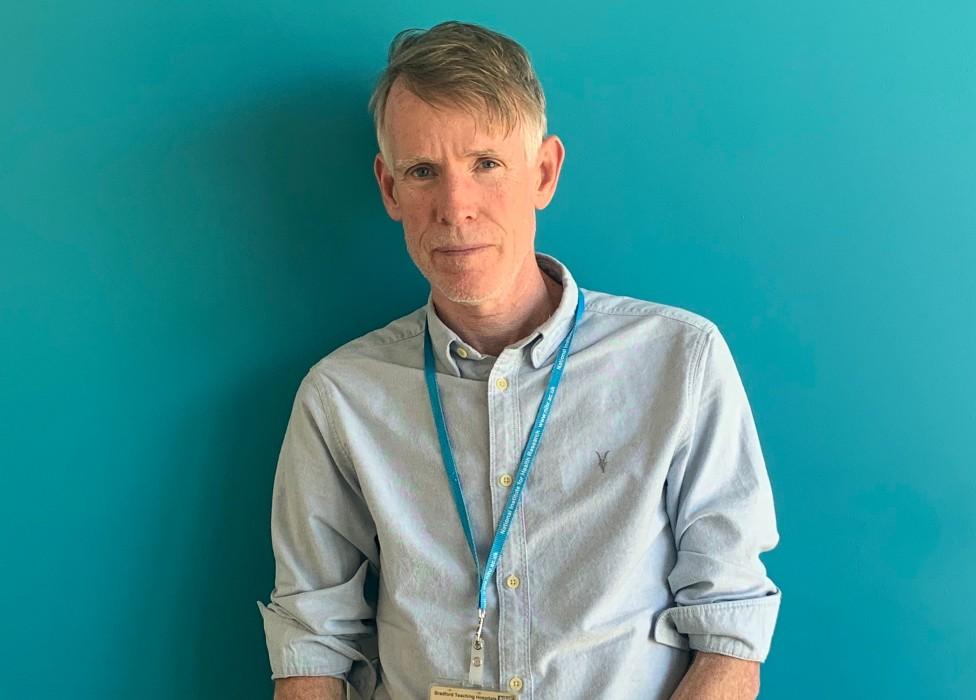
Front line diary
Prof John Wright, a doctor and epidemiologist, is head of the Bradford Institute for Health Research, and a veteran of cholera, HIV and Ebola epidemics in sub-Saharan Africa. He is writing this diary for BBC News and recording from the hospital wards for BBC Radio.
Listen to the next episode of The NHS Front Line on BBC Sounds or the BBC World Service
Or read the previous online diary entry: Why does Covid-19 make some healthy young people really sick?

Ken Linton did a PhD in engineering and computer science before going into banking, when he was headhunted by Lehman Brothers and transferred to Wall Street. He was making a fortune and had bought a 37ft boat and a small plane by the time things started to go wrong for the bank in early 2008, and his department was closed.
A few months later the bank collapsed altogether and the economic crash began, but Ken came out of it largely unscathed. The New York Times described him in 2009 as living "a life of leisure" and playing jazz trombone, external, though around this time he was also volunteering in New York hospitals. He contemplated becoming a chef, but instead - already in his mid-40s - he decided on medicine.
As a lifelong asthmatic, Ken was worried when Covid-19 arrived in the UK this spring. Lots of his colleagues at Bradford Royal Infirmary were getting it, and he too eventually developed the symptoms on 8 May.
"I went to bed and I was too hot - and I was like really, really too hot. And then I woke up and was absolutely freezing. And then I started being sick," he says.
"I called up A&E and packed a bag for everything you need at hospital - a lot of people forget the essentials. The consultant took my vital signs and I was very short of breath. I had low potassium, and my oxygen saturation was terrible. So they got me up to the ward very quickly."
Soon he was on "about 10 medications" and oxygen.
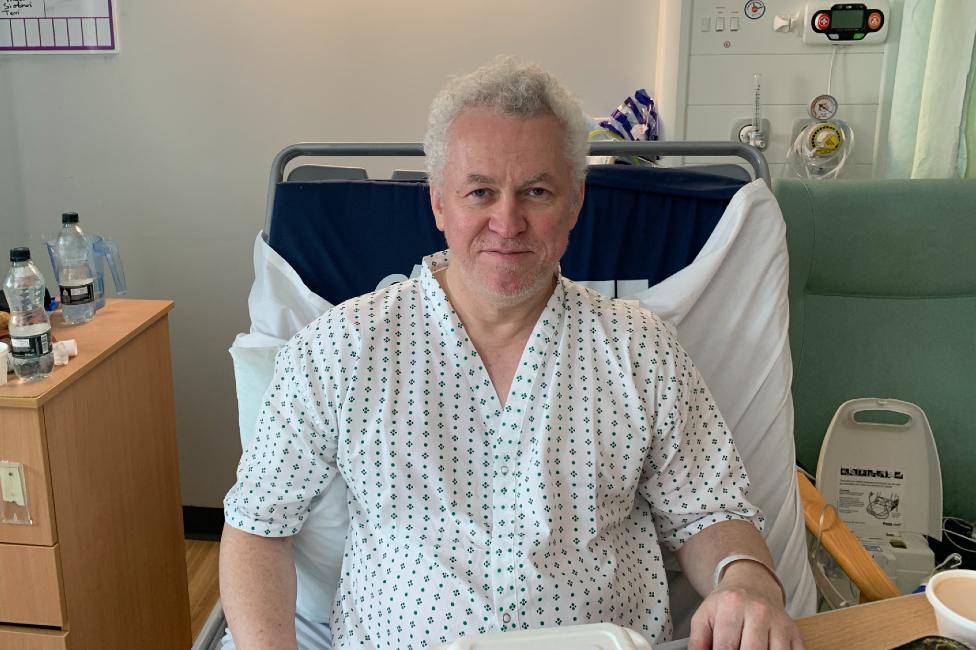
Ken Linton, already on the mend
"It's a horrendous disease because every day after that I had a new weird symptom. I had covid toes. My kidneys shut down on the Wednesday morning. I got a dermatological condition - the arteries that supply the skin get blocked. There's a new surprise every day. The day before I went home I got this viral rash on my wrist."
He was in hospital for 10 days. He's now been at home for a week, but like Alex Brown, he can only manage a flight of stairs with difficulty. And he too is desperate to get back to work - in his case, orthopaedic surgery.
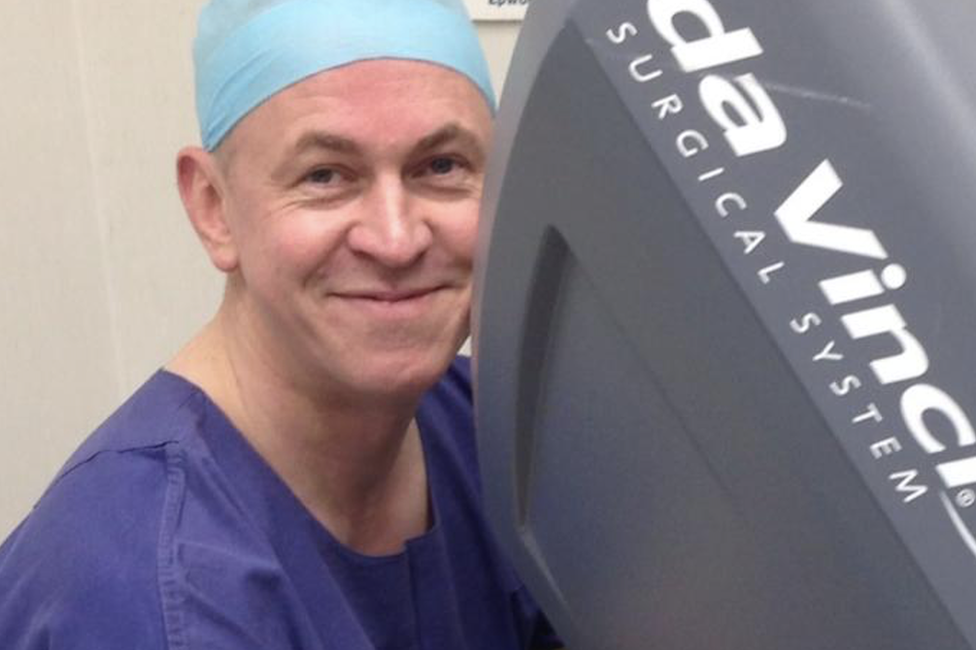
It would be natural for stories like this to make some people think twice about coming to work in a hospital, but the evidence suggests the opposite is happening.
Alex, who is in charge of our trainee doctors and often runs weekend workshops for local comprehensive schools, thinks that the huge amount of exposure the NHS has received - not to mention the clapping for carers - will have "opened up people's minds" to the idea of medicine and nursing as a career.
Ken, the former Lehman Brothers banker, points out that "you can't take money with you when you die" but that as a doctor "you can make your mark - make a difference". He has the evidence for it in letters from patients thanking him, and other hospital staff, for taking care of them when they needed it most.
Follow @docjohnwright, external and radio producer @SueM1tchell, external on Twitter

PUBLIC TRANSPORT: Is it safe to travel?
FACE MASKS: Should I be wearing one?
RISK AT WORK: How exposed is your job?
LOOK-UP TOOL: How many cases in your area?
GLOBAL SPREAD: Tracking the pandemic
